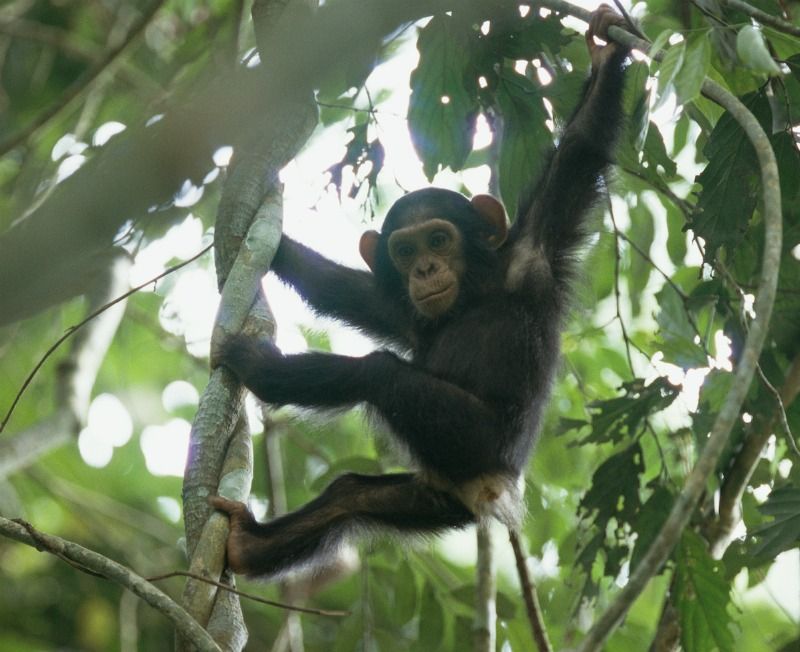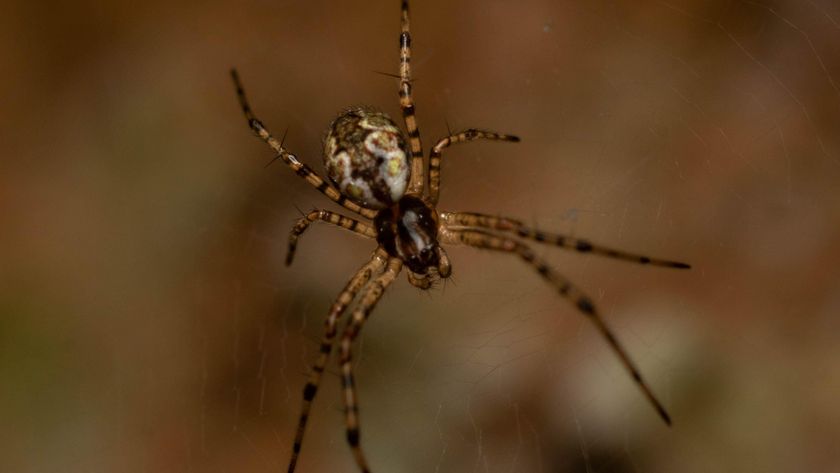
Haven to Chimps, Gorillas Expands

An area known as Earth's last Eden — a lush swath of forest home to elephants, gorillas and a special population of chimpanzees — is getting some new protections, the Republic of Congo announced this week.
Officials are expanding the borders of Nouabalé-Ndoki National Park to include the Goualougo Triangle, a pristine haven for a wide variety of animals in this African country, which lies just west of its far larger neighbor, the Democratic Republic of Congo.
Though the 100-square-mile (260-square-kilometer) region is home to forest elephants and western lowland gorillas, it is perhaps best known for its population of "naïve" chimpanzees — apes so isolated from human contact that they are known to boldly approach researchers to investigate the foreign visitors.
"Rather than flee at the sight of humans, which is typical in areas where the apes have been hunted, the chimpanzees in the Goualougo Triangle would approach us and move closer to get a better look at their bipedal cousins," said Crickette Sanz, a lead ape researcher with the Goualougo Triangle Ape Project, and an assistant professor at Washington University.
"We might initially contact a small group of chimpanzees, but by the end of the day be surrounded by these naive apes," Sanz wrote in an email to OurAmazingPlanet. "Sometimes, the chimpanzees would even attempt to follow us as we headed back to camp at night or build their night nests over our camp!"
Scientists discovered that the chimpanzees also possessed unique tool-using skills. They not only "fished" for termites with long twigs, as other chimpanzees do, sticking thin sticks into termite mounds to retrieve the insects, but also used shorter twigs and branches to poke holes in the mounds first.
"These chimps have greatly expanded our knowledge of chimpanzee culture. Continued work to study and protect this undisturbed population is essential," said John Robinson, executive vice president of conservation and science with the Wildlife Conservation Society.
Sign up for the Live Science daily newsletter now
Get the world’s most fascinating discoveries delivered straight to your inbox.
In videos taken in the forest, curious chimpanzees investigate cameras with sticks and a massive silverback gorilla placidly enjoys a piece of fruit.
Poaching, habitat loss and the spread of diseases such as Ebola all threaten the region's apes, according to the WCS, which worked with Congolese officials and corporate interests to increase protections for the Goualougo Triangle.
The expanded park border is "wonderful news for the chimpanzees and gorillas of the Goualougo Triangle," Sanz said.












